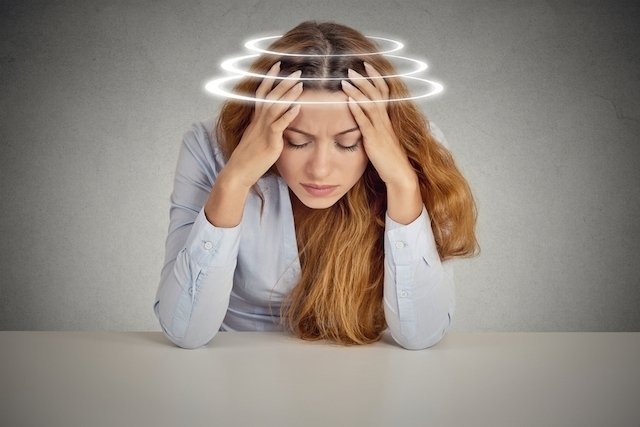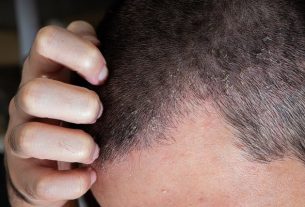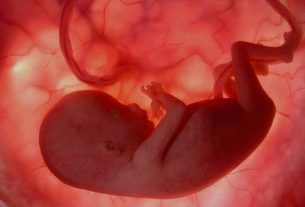Emotional labyrinthitis is inflammation of the nerves in the ear or labyrinth, caused by emotional changes such as excess stress, anxiety or depression.
As a result of inflammation of the labyrinth, it is common for symptoms such as a sensation of pressure or ringing in the ear, decreased balance, dizziness and frequent headaches to appear, which worsen in situations of acute stress or during sudden movements of the head.
During a labyrinthitis attack, it is advisable to rest to alleviate the symptoms, but it is also very important that, outside of the crisis, you undergo some time of psychological support, to prevent it from recurring, especially when it is very recurrent.

Main symptoms
The main symptoms of emotional labyrinthitis are:
- Nausea;
- Dizziness;
- Constant ringing in the ear;
- Difficulty hearing or momentary hearing loss;
- Feeling of stuffy ears;
- Imbalance.
In the presence of signs and symptoms of labyrinthitis, it is important that the otorhinolaryngologist is consulted so that the diagnosis can be confirmed and treatment can be initiated. Check out other symptoms of labyrinthitis.
Online symptom test
To find out the risk of having labyrinthitis, select the symptoms presented in the following test:
The symptom test is a tool that only serves as guidance, not serving as a diagnosis or replacing a consultation with an otorhinolaryngologist.
Possible causes
The emotional labyrinth occurs as a consequence of psychological and/or emotional factors, and can be triggered by:
- Depression;
- Anxiety;
- Excessive stress;
- Loss of a loved one;
- Panic Syndrome;
- Loss of employment;
- Pressure and demands at work or studies.
It is important that the cause responsible for the appearance of labyrinthitis symptoms is identified, as this means that the best treatment can be initiated.
How the treatment is carried out
The treatment of emotional labyrinthitis must be carried out with psychotherapy with the aim of identifying the main cause of the change. In general, treatment can be carried out without including the use of medication, working only to strengthen the emotional side, increase self-esteem and teach techniques to deal with anxiety and stress. However, in cases of depression or generalized anxiety, it may be necessary to use medication to help combat attacks of these diseases.
Furthermore, to avoid new attacks of labyrinthitis, you should drink at least 2 liters of water per day, avoid consuming alcoholic and carbonated drinks, avoid foods rich in sweets and fats, practice physical activities and stop smoking. See more details about nutrition for labyrinthitis.
Home options to alleviate labyrinthitis
Some tips to combat crises and alleviate the stress and anxiety that cause labyrinthitis are:
- Avoid noisy places with lots of people, such as concerts and football stadiums;
- Eat meals in a calm and peaceful place;
- Practice physical activity regularly, as it increases the production of hormones that give a feeling of pleasure and well-being;
- Increase consumption of omega 3, which is present in foods such as fish, nuts and flaxseed;
- Drink soothing juices and teas daily, such as those made from chamomile, passion fruit and apple.
In addition, you can also invest in relaxing massages 1 to 2 times a week and in acupuncture treatment, which helps to restore balance in the body and control emotions. See some home remedy options to combat anxiety.
Bibliography
- DOMMARAJU, S.; PERERA, Eshini. An approach to vertigo in general practice. Australian Family Physician. 45. 4; 190-4, 2016
- BARKWILL, D.; ARORA, R. IN: STATPEARLS (INTERNET). TREASURE ISLAND (FL): STATPEARLS PUBLISHING. Labyrinthitis. Available at: <https://www.ncbi.nlm.nih.gov/books/NBK560506/>. Accessed on November 5, 2021
- WIPPERMAN, J. Dizziness and vertigo. First Care. 41. 1; 115-31, 2014
- EDLOW, JA; et al. A New Diagnostic Approach to the Adult Patient with Acute Dizziness. J Emerg Med. 54. 4; 469-483, 2018

Sign up for our newsletter and stay up to date with exclusive news
that can transform your routine!
Warning: Undefined array key "title" in /home/storelat/public_html/wp-content/plugins/link-whisper-premium/templates/frontend/related-posts.php on line 12
Warning: Undefined array key "title_tag" in /home/storelat/public_html/wp-content/plugins/link-whisper-premium/templates/frontend/related-posts.php on line 13




